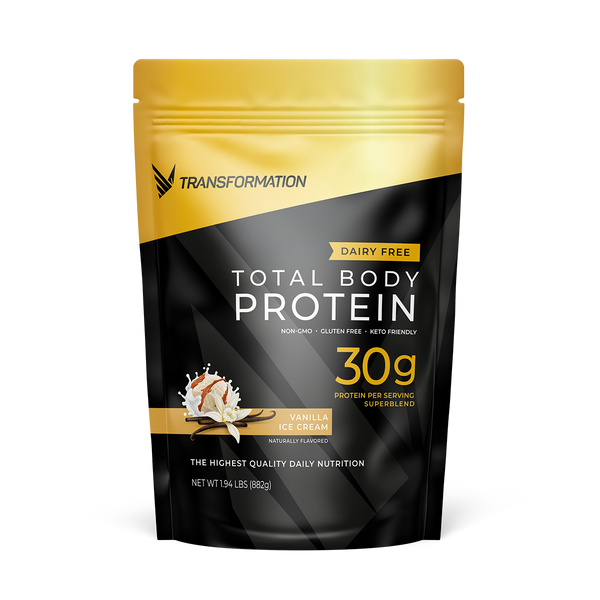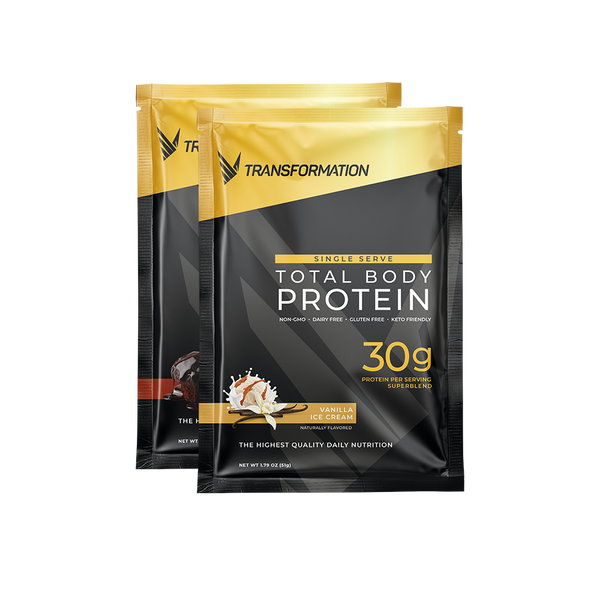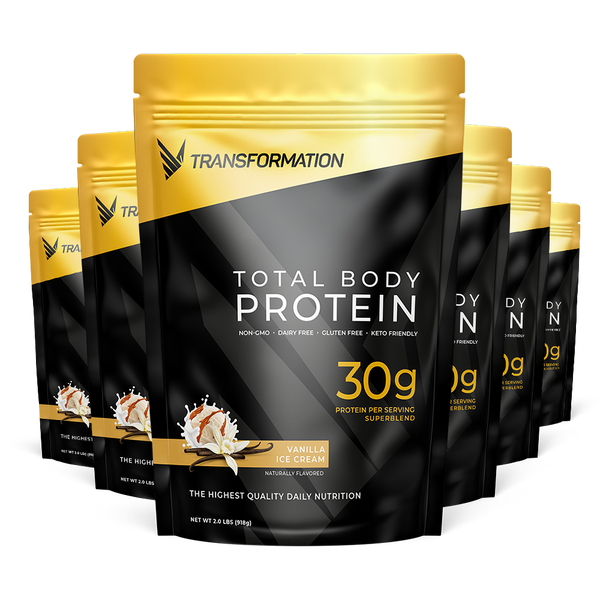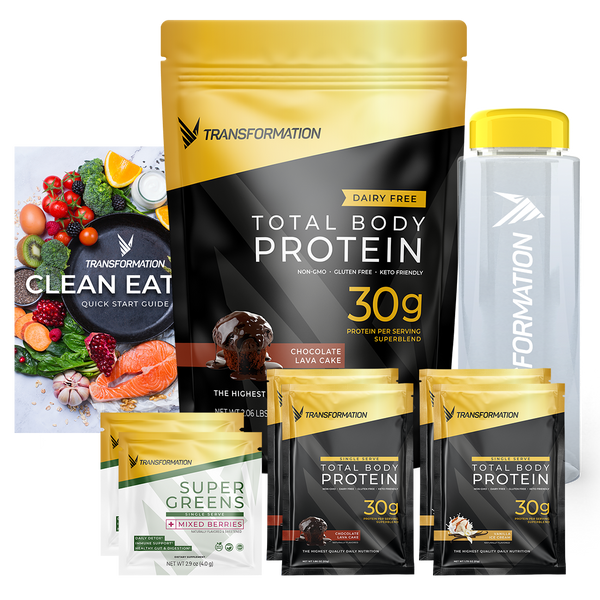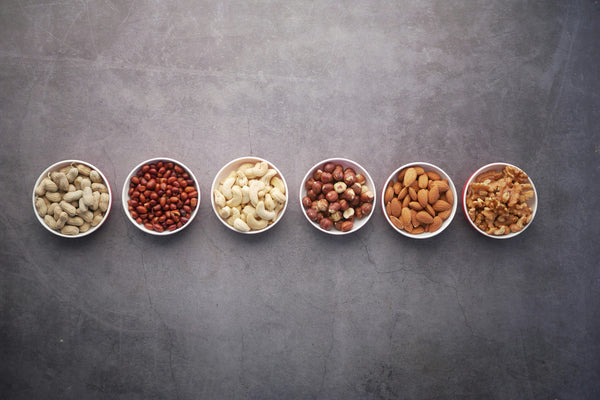
Vegan Protein 101: Is Plant-Based Protein Hard To Digest?
As the world turns towards sustainable living, the plant-based protein revolution is at the forefront, offering many options for those looking for alternatives to traditional animal sources.
With changing dietary preferences and a conscious nod to ethics and the environment, the rise of plant-based lifestyles isn't merely a passing trend – it marks a significant move towards a greener, healthier way of eating.
In this post, we'll break down the basics of plant-based protein, giving you the lowdown on how it stacks up against animal-based counterparts, particularly regarding digestion.
Consider this article your go-to resource on plant-based protein, where we share insights to help you meet your protein goals and explore the diverse options available. Let's dive in.
What is plant based protein all about?
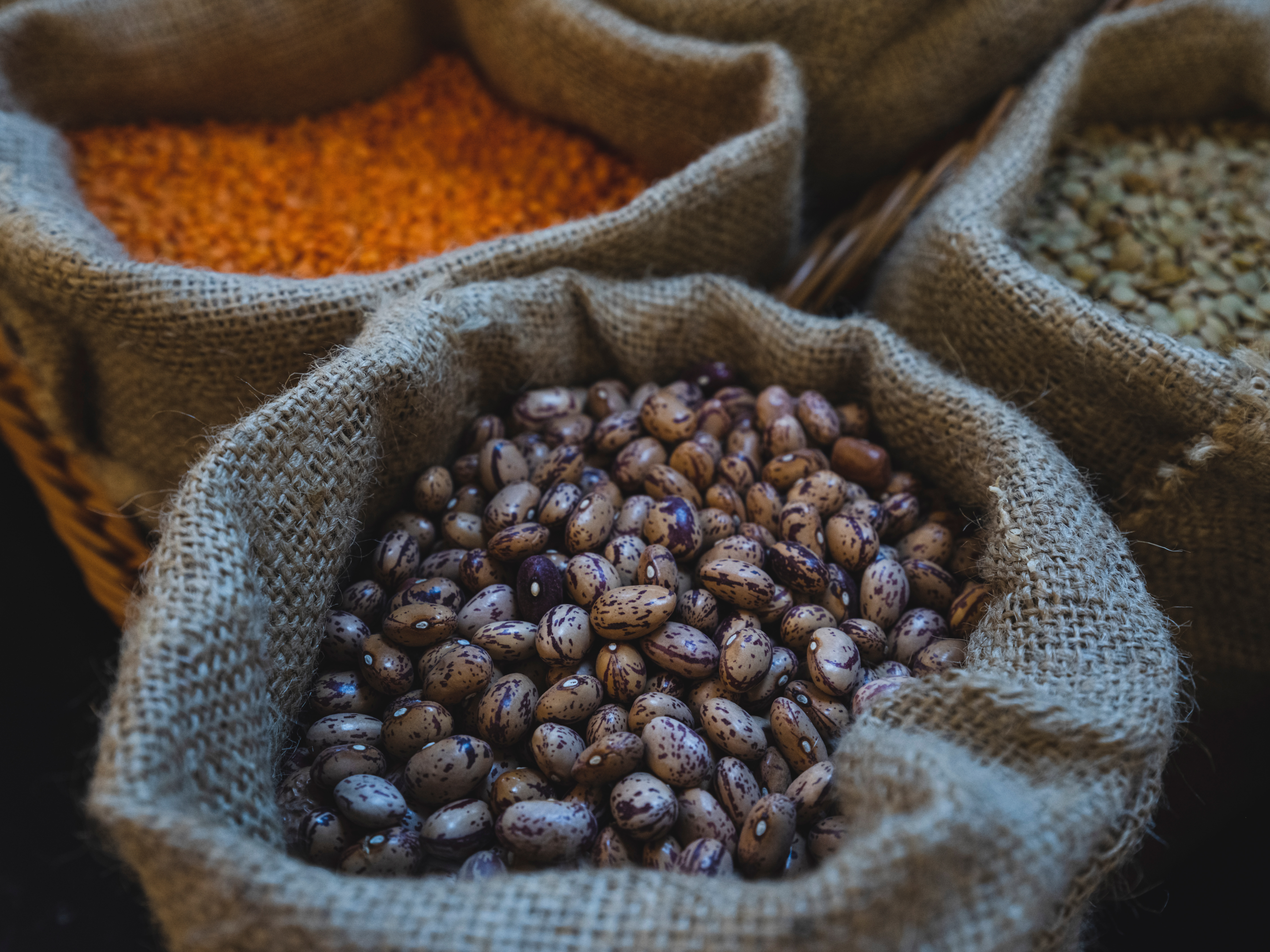
Plant-based protein comes from various plants, including peas, legumes, soybeans, hemp seeds, spirulina, lentils, and brown rice. These proteins undergo extraction from their plant origins and are processed into a powdered form.
Legumes like lentils and chickpeas, whole grains such as quinoa and oats, nuts like almonds and peanuts, and seeds including chia and flaxseed are all excellent plant-based protein sources.
Understanding digestibility
Protein digestibility refers to how efficiently our bodies break down and absorb the protein we consume.
Enzymes in the stomach and small intestine break down proteins into amino acids, the building blocks that our bodies use for muscle repair and immune system support.
While each plant-based protein source has unique digestion characteristics, the overall process ensures that essential nutrients are efficiently absorbed.
Nature's protein treasure – essential plant based sources
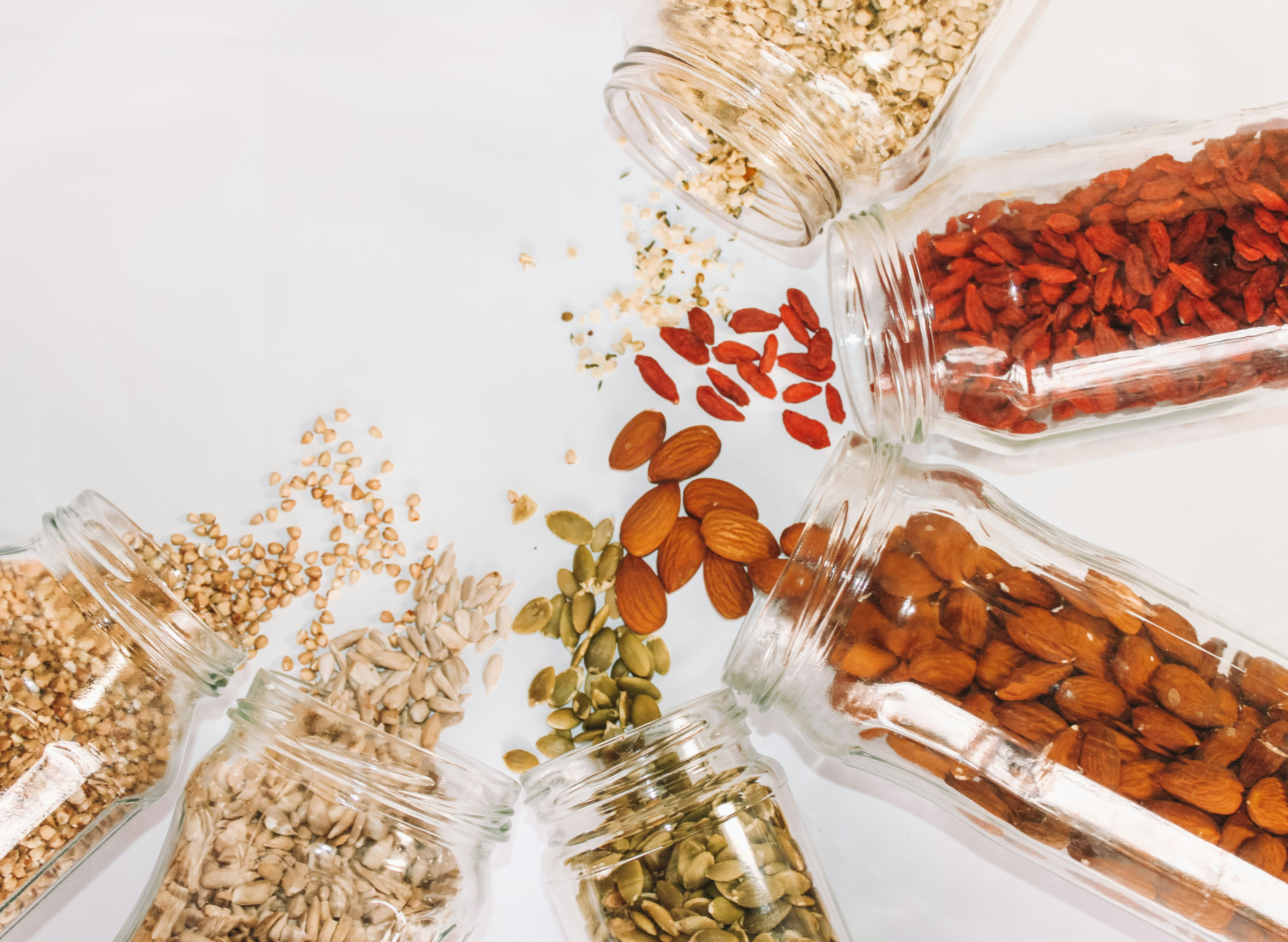
Legumes: Beans, lentils, and chickpeas fall under the legume category, offering a substantial protein punch. These plant proteins, rich in fiber, may take longer to digest, providing a sustained release of energy and promoting a feeling of fullness.
Grains: Grains like quinoa, oats, and barley also contribute to the protein pool. While grains may not be as protein-rich as some legumes, they bring essential amino acids to the table. Their digestion rate varies, influencing the gradual release of nutrients into the bloodstream.
Nuts: Almonds, walnuts, and peanuts are popular protein-packed nuts. They offer not only protein but also healthy fats. The digestion of nuts tends to be slower, providing a lasting energy source.
Bonus: What plant-based milk has the most protein?
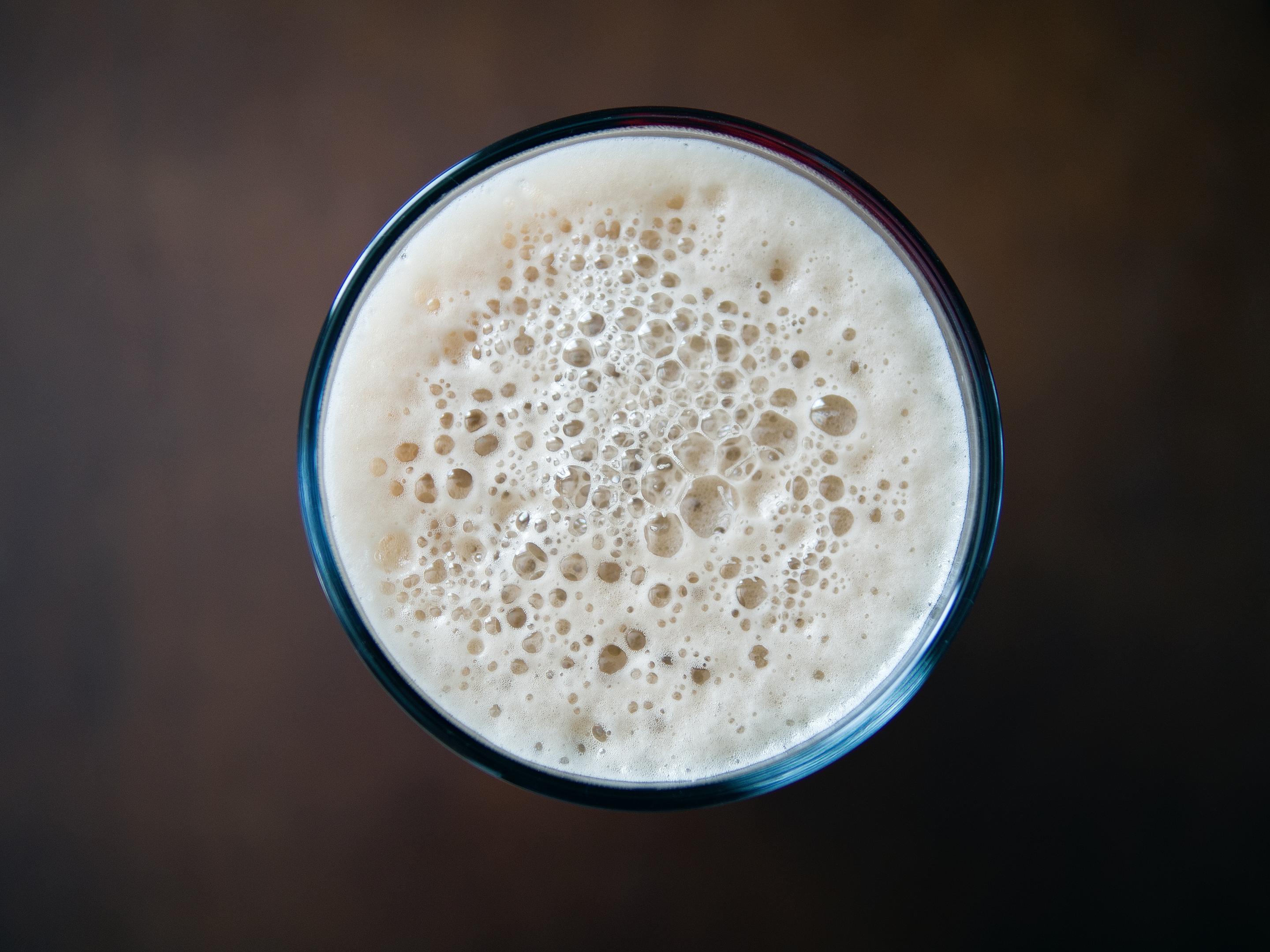
Soy milk leads in protein content among plant-based milk alternatives, providing a comparable amount to cow's milk. With roughly 7-9 grams of protein per cup, soy milk stands out as a rich source of plant protein.
Almond milk, on the other hand, tends to be lower in protein, averaging around 1 gram per cup. Oat milk falls somewhere in the middle, providing 3-4 grams of protein per cup.
Pea milk, a newcomer in the market, is gaining popularity for its protein content, typically ranging from 8-10 grams per cup.
Best options for vegan protein powder
Plant-based protein powders have become increasingly popular for those who prefer a convenient and concentrated protein source.
Pea protein
Pea protein is made from yellow peas and boasts a well-balanced amino acid profile, making it an excellent choice for supporting muscle growth and repair.
Its digestibility is a standout feature, often considered gentler on the stomach than other plant-based proteins. This makes it suitable for individuals with digestive sensitivities or lactose intolerance.
Moreover, its sustainable production adds an eco-friendly dimension to its appeal. However, it's crucial to note that pea protein may lack certain nutrients found in whole peas, and some individuals might find its taste slightly earthy.
Pumpkin seed protein
Packed with essential amino acids, pumpkin seed protein delivers a substantial protein punch and a range of essential nutrients. The protein content can vary slightly when considering popular pumpkin seed protein sources, such as those available in powder form. On average, a 30-gram serving of pumpkin seed protein powder contains around 15-20 grams of protein. This makes it an excellent choice for those looking to boost their protein intake, especially in plant-based or vegan diets.
In addition to protein, pumpkin seed protein provides a mix of essential amino acids, healthy fats, fiber, magnesium, zinc, and iron. These nutrients support muscle function, immune health, and overall well-being.
The high antioxidant content in pumpkin seed protein contributes to combating oxidative stress, a critical factor in overall well-being.
And let's not forget about your heart – loaded with omega-3 fatty acids and phytosterols, pumpkin seed protein is your heart's ally.
Soy protein
Soy protein is a longstanding favorite in the plant-based protein market for its status as a complete protein, making it comparable to animal proteins. It offers all essential amino acids vital for muscle development and overall health.
Additionally, soy protein might offer extra health advantages, like promoting heart health and lowering cholesterol. In terms of digestibility, many people tolerate soy protein well. However, it's crucial to stay aware of potential allergens and sensitivities. On the downside, some individuals worry about soy's phytoestrogen content, as it could impact hormonal balance.
Hemp protein
Harvested from hemp seeds, this plant-based powder boasts not only protein but also essential fatty acids, fiber, and various vitamins and minerals.
Its digestibility is generally well-tolerated, and the added nutritional benefits make it a sought-after choice for those aiming for a holistic approach to their dietary intake.
However, the earthy taste of hemp protein might be an acquired preference for some individuals.
Additionally, while hemp protein is nutrient-rich, it may not be as protein-dense as some other plant-based options.
Rice protein
Rice protein contains all essential amino acids and is often hypoallergenic, making it an excellent choice for individuals with food sensitivities or allergies.
It is typically easy on the stomach, allowing for comfortable consumption by those with digestive concerns. However, some individuals may find its taste less palatable than other plant-based options.
Common digestibility myths about plant protein

A common misconception implies that plant-based proteins are harder to digest than their animal counterparts. However, numerous studies and expert opinions assert that well-processed plant proteins can be easily digestible.
A study published in the Journal of Nutrition found that individuals consuming a well-rounded plant-based diet rich in various protein sources exhibited efficient protein digestion. Nutritionists and dietitians further emphasize the efficacy of protein digestion in a well-balanced plant-based eating pattern.
Careful selection and processing can make a notable difference. Improvements in protein extraction and processing methods have significantly contributed to enhancing the digestibility of plant proteins.
This challenges the notion that plant-based proteins inherently pose digestive challenges.
The key takeaway?
Maintaining a well-balanced plant-based diet featuring an array of legumes, grains, nuts, and seeds ensures optimal protein digestion.
Plant proteins vs. animal proteins: How do they differ from each other?

Plant and animal proteins differ primarily in their amino acid composition.
Amino acids fall into two main types: essential and nonessential.
Essential amino acids are crucial for the body and must be obtained through diet since the body cannot produce them.
Essential amino acids include histidine, isoleucine, leucine, lysine, methionine, phenylalanine, threonine, tryptophan, and valine.
Our body can create nonessential amino acids by either using essential amino acids or breaking down proteins.
This group comprises alanine, arginine, asparagine, aspartic acid, glutamic acid, glutamine, glycine, proline, serine, and tyrosine.
Animal protein is generally considered complete as it contains all essential amino acids, while plant proteins are deemed incomplete due to the typical absence of certain essential amino acids.
Another significant difference between animal and plant proteins is their macronutrient ratios, specifically the protein content. Animal proteins tend to have a higher protein concentration compared to plant proteins.
Let's break it down by comparing popular plant-based protein options with their animal-based counterparts.
Plant-based proteins are renowned for being gentle on the digestive system, with pea protein standing out as an ideal option, often well-tolerated by individuals with digestive sensitivities.
On the flip side, animal-based proteins, especially whey and egg white protein, are renowned for quick absorption, making them ideal for post-workout recovery.
Finding your perfect fit
When choosing the protein option that best fits your needs, consider your preferences, nutritional needs, and ethical values. Here are some factors to consider as you make your decision:
Nutritional goals: Tailor your protein intake to meet specific dietary objectives. If you're aiming for a leaner profile, plant-based proteins might be your go-to, while animal proteins could be preferred for muscle building with their complete amino acid profile.
Ethical considerations: If sustainability and animal welfare are crucial to you, plant-based proteins provide a cruelty-free and environmentally conscious alternative.
Taste preferences: Try both plant and animal protein options. Whether you savor the earthiness of plant-based sources or relish the richness of animal-based options, let your taste buds guide your choices.
Addressing digestive concerns with plant proteins
For some individuals, plant proteins might pose a digestion challenge due to the presence of compounds like phytates and fiber. These compounds can, in some cases, interfere with nutrient absorption and lead to digestive discomfort.
Additionally, the natural variability in protein quality among plant sources may impact digestibility for certain individuals.
Fortunately, advancements in processing methods and the availability of refined plant protein isolates have significantly addressed these concerns.
While some people may initially experience digestive adjustments when transitioning to plant-based proteins, many find that their bodies adapt over time.
The protein industry actively addresses potential digestibility concerns by refining formulations and enhancing processing techniques, ensuring consumers a more enjoyable and comfortable experience incorporating plant-based proteins into their diets.
Final thoughts
As consumers increasingly embrace plant-based lifestyles, the industry is responding with innovations that enhance plant-based proteins' nutritional quality and digestibility.
Whether it's hemp, soy, pea, or rice, each option caters to distinct preferences and dietary requirements.
The key message for our health-conscious readers is to make thoughtful decisions, weighing both the nutritional benefits and digestibility aspects when integrating plant-based proteins into their dietary routines.
Within the nutrition landscape, plant proteins are an enticing and readily digestible option for those dedicated to personal well-being and sustainability.
If you're looking for a protein powder that seamlessly blends the best of both worlds, consider exploring our flagship product — Total Body Protein.
Combining the benefits of egg white, collagen, and plant proteins, our blend offers a comprehensive amino acid profile and enhances digestibility, ensuring you get the most out of every serving.


